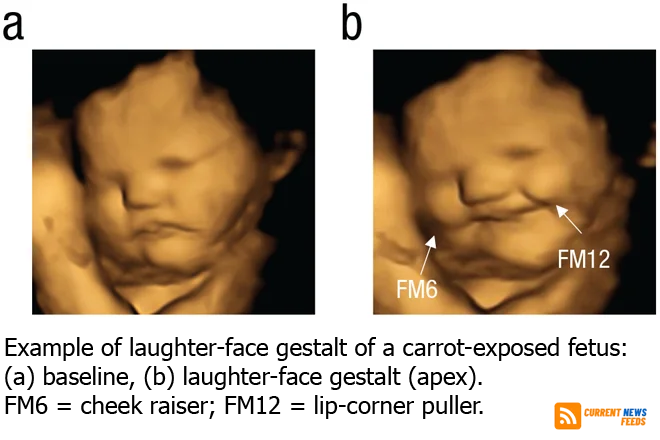
Unborn children respond differently to different smells and tastes. Scientists discovered this by looking at the fetuses' facial expressions. The results? It turns out that like most of us, fetuses love carrots, but not kale.
British researchers made moving 4D echoes of the bellies of a hundred pregnant women. The women were given tablets filled with kale or carrot powder. Then the scientists watched how the fetuses responded to the flavors after 20 minutes.
The unborn children who were given carrots had smiling faces, according to the researchers. The others, who tasted kale, they saw put on sad faces. During the study, the women were between the ages of 18 and 40 and between 32 and 36 weeks pregnant.
Unborn children experience taste differently than we do. We taste through a combination of taste and smell. Experts think fetuses experience taste by swallowing or inhaling the amniotic fluid in the womb.
Taste perhaps determined as early as the womb
The researchers believe their study may contribute to the knowledge of taste. Possibly what a pregnant woman eats influences her baby's taste preferences. And perhaps they can already teach healthy eating habits this way.
New research should show how the fetuses respond to other flavors. Scientists also want to see if they react less negatively if they have been exposed to kale more often, for example.
Furthermore, they want to investigate whether unborn children retain taste preferences once they are born.
Source: APS.






